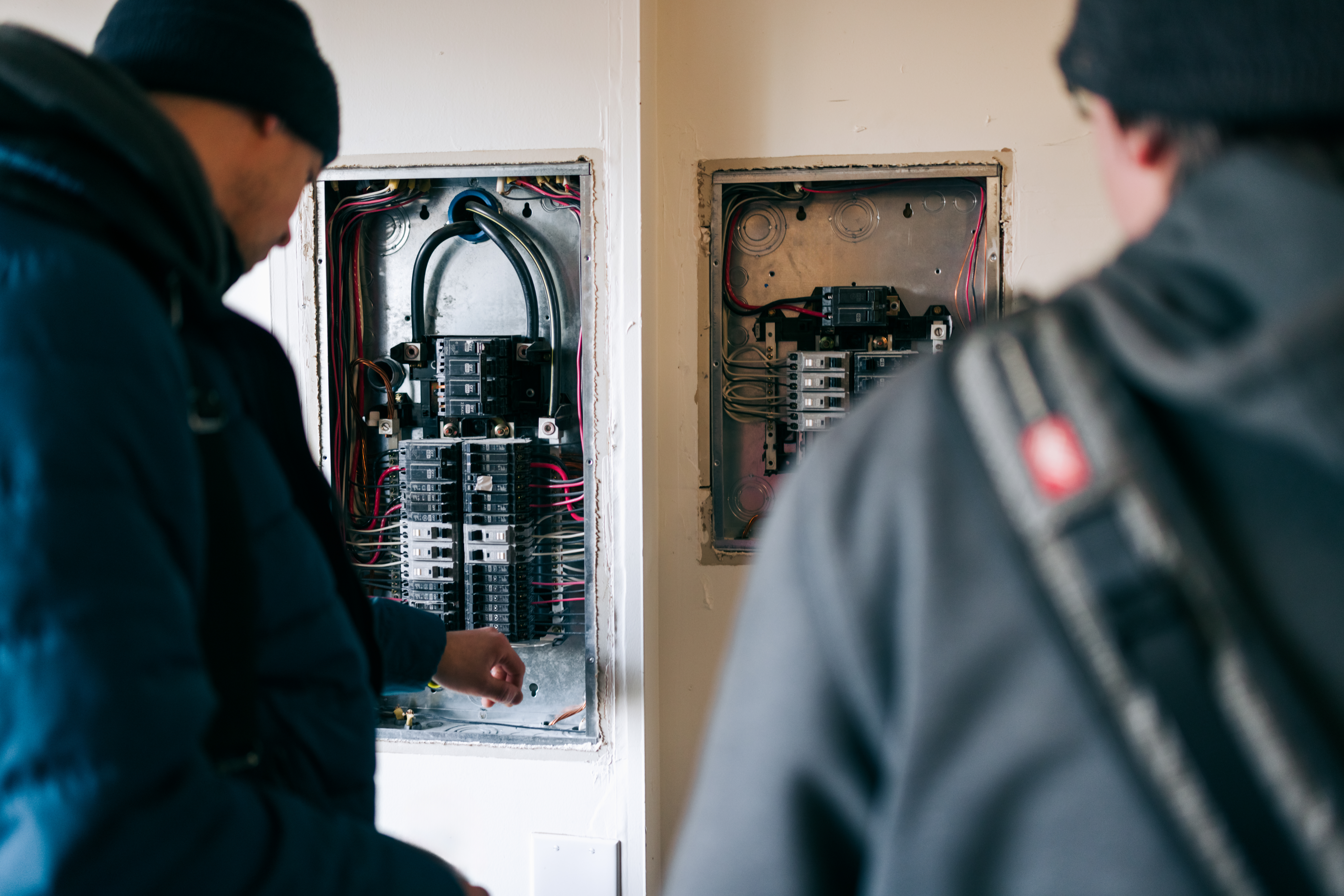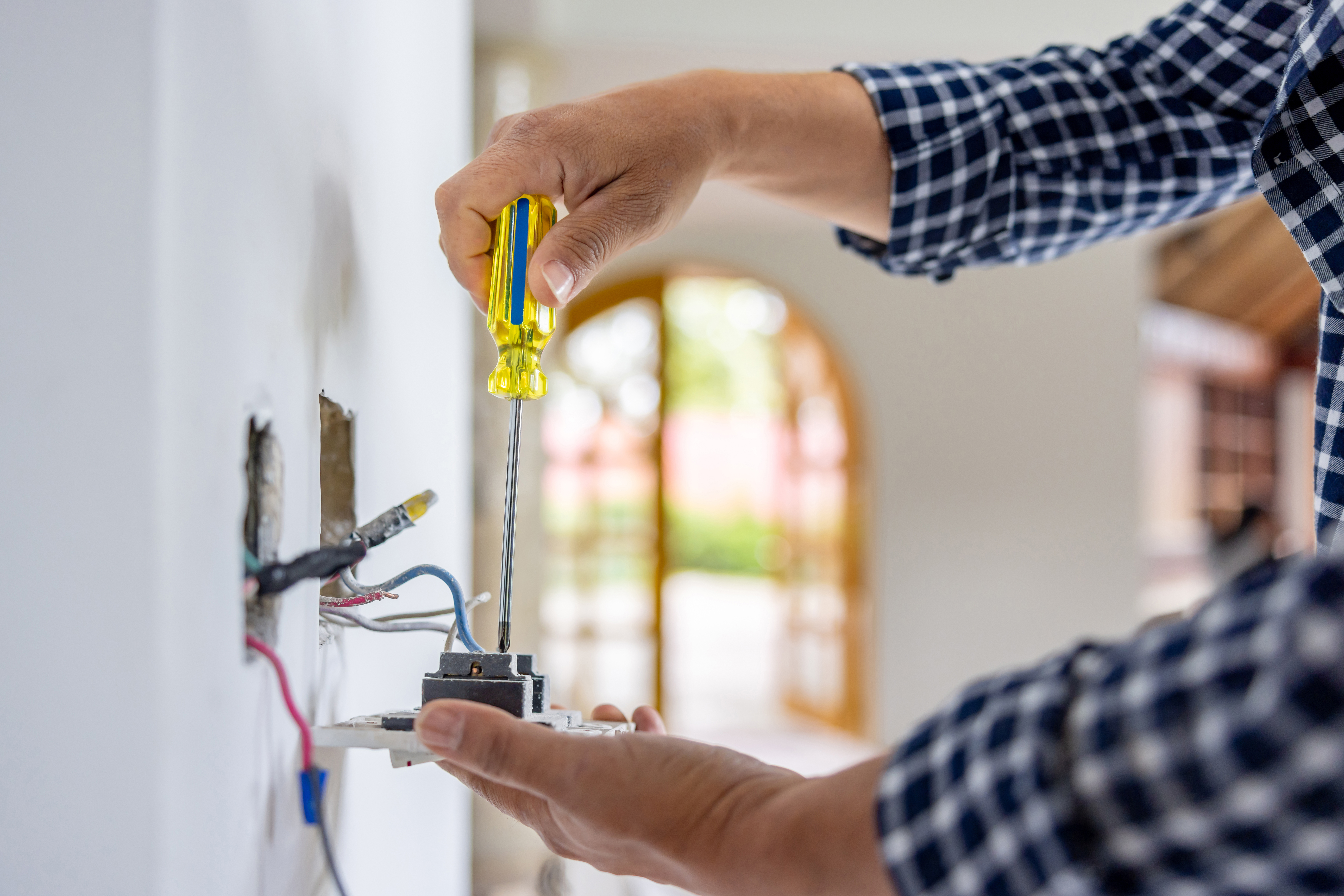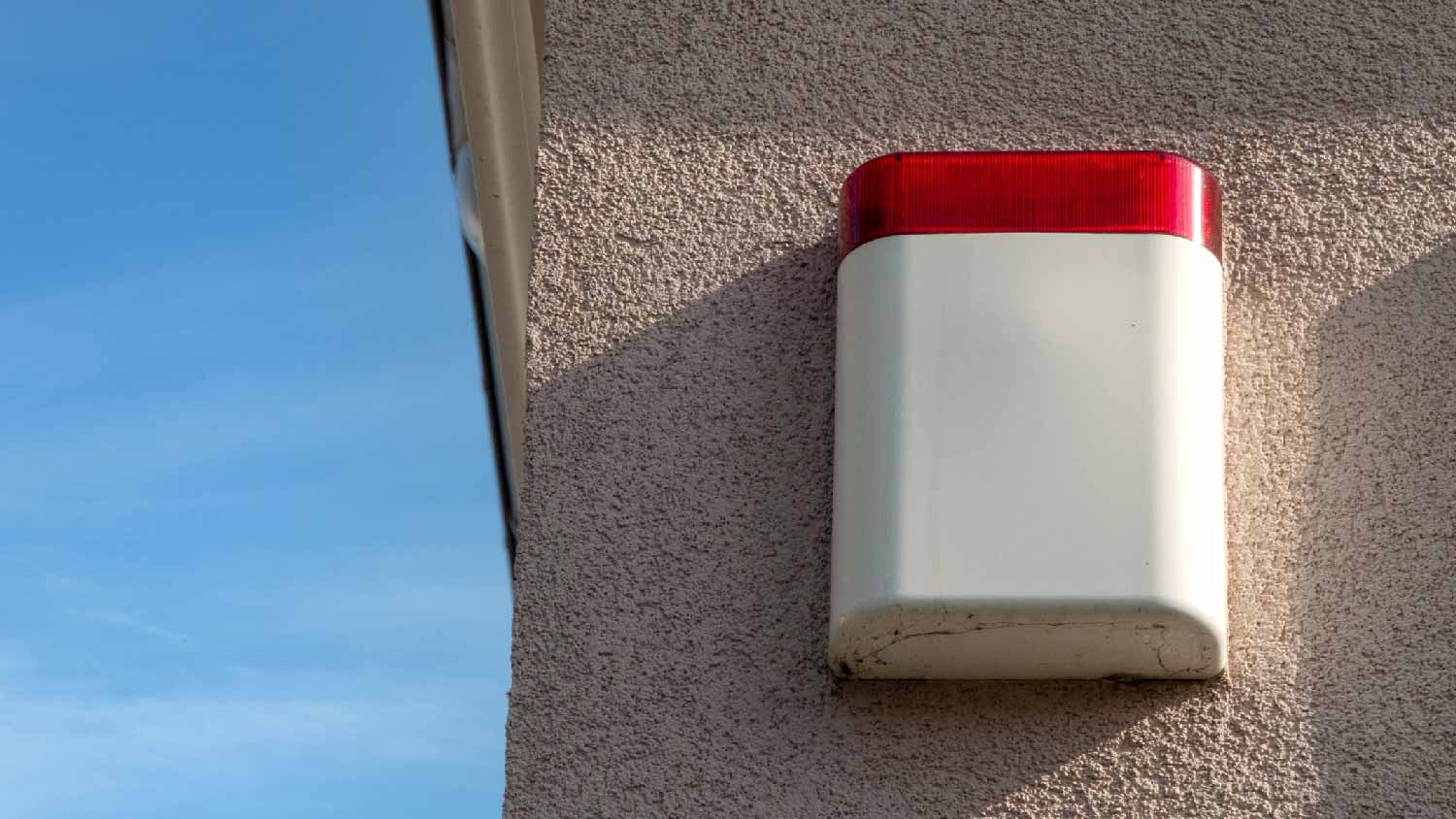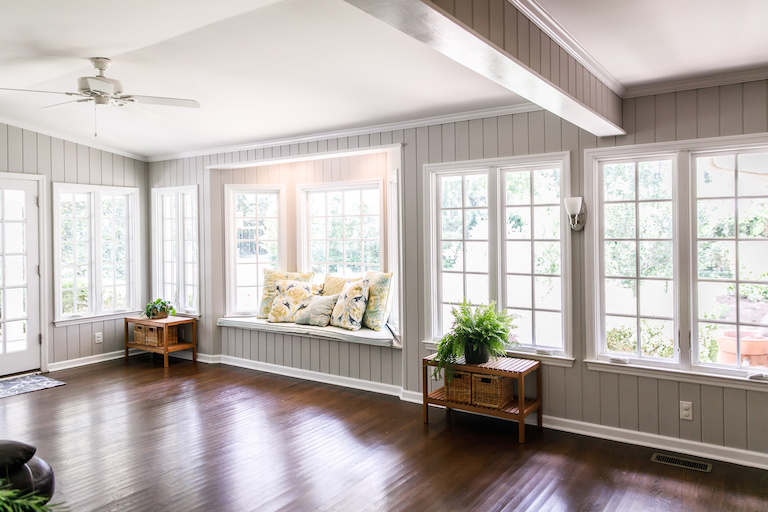
Installing a dedicated line in your home or garage is fairly straightforward, but may have a wide range of cost-affecting factors, like materials, labor, and necessary permits.
Electrical panel replacement in Detroit costs $940 on average, with most homeowners paying between $420 and $1,470. Your total cost depends on amperage, panel type, labor, and how accessible your current setup is.


Replacing an electrical panel in Detroit costs an average of $940, with prices ranging from $420 for minor repairs to $2,600 for major upgrades like panel relocation or amperage increases.
Labor costs range from $50 to $150 per hour, with full panel replacements requiring 20 to 30 hours of work, resulting in labor expenses between $1,000 and $4,500.
Detroit’s permit fees start at a base of $75 and increase with panel amperage, potentially reaching $300 or more, with inspections required to ensure code compliance.
Additional costs may arise from limited panel accessibility, wiring replacements, drywall repairs, or moving the panel location.
Replacing an electrical panel in Detroit costs $940 on average, with most jobs ranging from $420 to $1,470. Small-scale repairs, like swapping a damaged breaker, might run as low as $140, while more involved upgrades, such as relocating the panel in an older home or upgrading the amperage, can cost up to $2,600. Your total will depend on factors like panel type, the condition of existing wiring, Detroit’s permit requirements, and labor rates across the metro area.
Wondering whether you should upgrade your electrical panel and how to plan your budget? These important factors will help guide your decision.
Many homes in Detroit’s historic neighborhoods, especially those built before 1950, still rely on outdated 60- or 100-amp panels. These systems weren’t built to handle today’s energy loads, including electric heating systems, updated kitchens, or home offices with modern tech. Upgrading to a 200-amp panel versus a 100-amp panel not only boosts performance, but it also supports future-ready improvements.
| Amperage | Cost Range |
|---|---|
| 100 amps | $100–$200 |
| 200 amps | $150–$250 |
| 300 amps | $250–$350 |
| 400+ amps | $500+ |
In Detroit, the kind of panel you install plays a major role in your total replacement cost. Here’s a look at how panel types influence pricing.
| Panel Type | Average Cost |
|---|---|
| Main Breaker | $500–$2,000 |
| Main Lug Panel | $400–$1,750 |
| Subpanel | $400–$2,000 |
| Fuse Box | $1,500–$2,000 |
| Meter Box | $100–$650 |
| Breaker Switch | $100–$200 |
Local electricians in Detroit charge between $50 and $150 per hour for labor, and most panel replacements take 20 to 30 hours to complete. This brings the average labor cost for this project to $1,000 to $4,500.
The city of Detroit’s Buildings and Safety Engineering Department permit fees for an electrical panel replacement vary depending on the size and type of the upgrade. Homeowners should expect to pay a base fee of $75, plus additional charges based on the amperage of the new service.
More complex installations or larger panels, such as 400 amps or more, can push total permit fees to $300 or higher, depending on the project’s scope. A licensed contractor must pull the permit, and the city will perform an inspection to confirm the installation meets Michigan’s electrical safety standards.
Many Detroit homes, especially in historic districts like Indian Village or Boston-Edison, were built in the early 1900s and weren’t designed with modern wiring needs in mind. Electrical panels are often tucked away in low-ceiling basements, narrow stairwells, or older utility closets. If access is limited or structural barriers are present, expect additional labor charges to complete the replacement.
One of the common electrical panel upgrade questions involves whether the main replacement will require supplementary tasks like drywall repair or rewiring. Depending on the setup, these extra steps may be essential to bring everything up to code. Here's what those services might cost.
Move electric panel: $1,500–$4,000
Installing new drywall: $1.50–$3 per square foot
Adding outlet: $125–$200
Replacing faulty wiring: $600 to $4,500

When planning an electrical panel replacement, here’s what to look for when choosing a qualified Detroit electrician.
Electricians in Michigan must be licensed through the Department of Licensing and Regulatory Affairs (LARA), with classifications such as journeyman or master electrician. Regulations also require electricians to carry liability insurance to cover any damage to your home during the job. Always check a contractor’s license and insurance to ensure they meet Michigan’s standards and can complete the work to code.
In Detroit, electricians charge an average of $50 to $150 per hour, depending on their credentials and the nature of the work. Rates are typically higher for master electricians or projects that involve high-amperage panel installations.
Michigan doesn’t charge a statewide sales tax on labor, but material costs may include applicable taxes or service fees. Some local electricians also add travel or setup charges for smaller jobs or harder-to-reach homes.
While tipping is not expected, you can offer a 10% gratuity if you feel compelled to offer an extra reward for exceptional service. Still, a strong recommendation or online review often goes further than a monetary thank-you in supporting an electrician’s business.
Electricians often back their work and equipment with warranties spanning 1 to 5 years. These standard policies usually cover installation errors or faulty materials. If you're offered an extended warranty, take time to compare its coverage with what's already included from the manufacturer to determine whether it’s worth the extra investment.
Yes, replacing an outdated electrical panel can add value to your home in Detroit, especially in historic neighborhoods like Arden Park, Boston-Edison, or Indian Village. Buyers love Detroit’s architectural character but expect safe, modern systems behind the walls. A new panel helps ensure the home can support modern appliances and technology, which can boost buyer confidence and improve your home’s resale potential.
Home is the most important place on earth, which is why Angi has helped more than 150 million homeowners transform their houses into homes they adore. To help homeowners with their next project, Angi provides readers with the most accurate cost data and upholds strict editorial standards. We survey real Angi customers about their project costs to develop the pricing data you see, so you can make the best decisions for you and your home. We pair this data with research from reputable sources, including the U.S. Bureau of Labor Statistics, academic journals, market studies, and interviews with industry experts—all to ensure our prices reflect real-world projects.
Want to help us improve our cost data? Send us a recent project quote to [email protected]. Quotes and personal information will not be shared publicly.
From average costs to expert advice, get all the answers you need to get your job done.

Installing a dedicated line in your home or garage is fairly straightforward, but may have a wide range of cost-affecting factors, like materials, labor, and necessary permits.

The average cost to install an electrical outlet is $133 to $296 each. This guide explains what factors impact the total cost of installing an outlet.

Running electricity to a detached garage or shed brings life to new areas of your home. If you’re building a workspace, an office, or a loft, you could even see a return on your investment by making that space liveable or useful for projects.

Ready to upgrade your front door and learn how to wire a doorbell? You may be able to handle this relatively simple DIY installation without an electrician.

Removing an alarm system may require the assistance of a professional electrician. Find out the average cost to remove old house alarms.

Wondering who to hire for electrical work on home additions? Compare electricians and electrical contractors to see how pros get the job done.